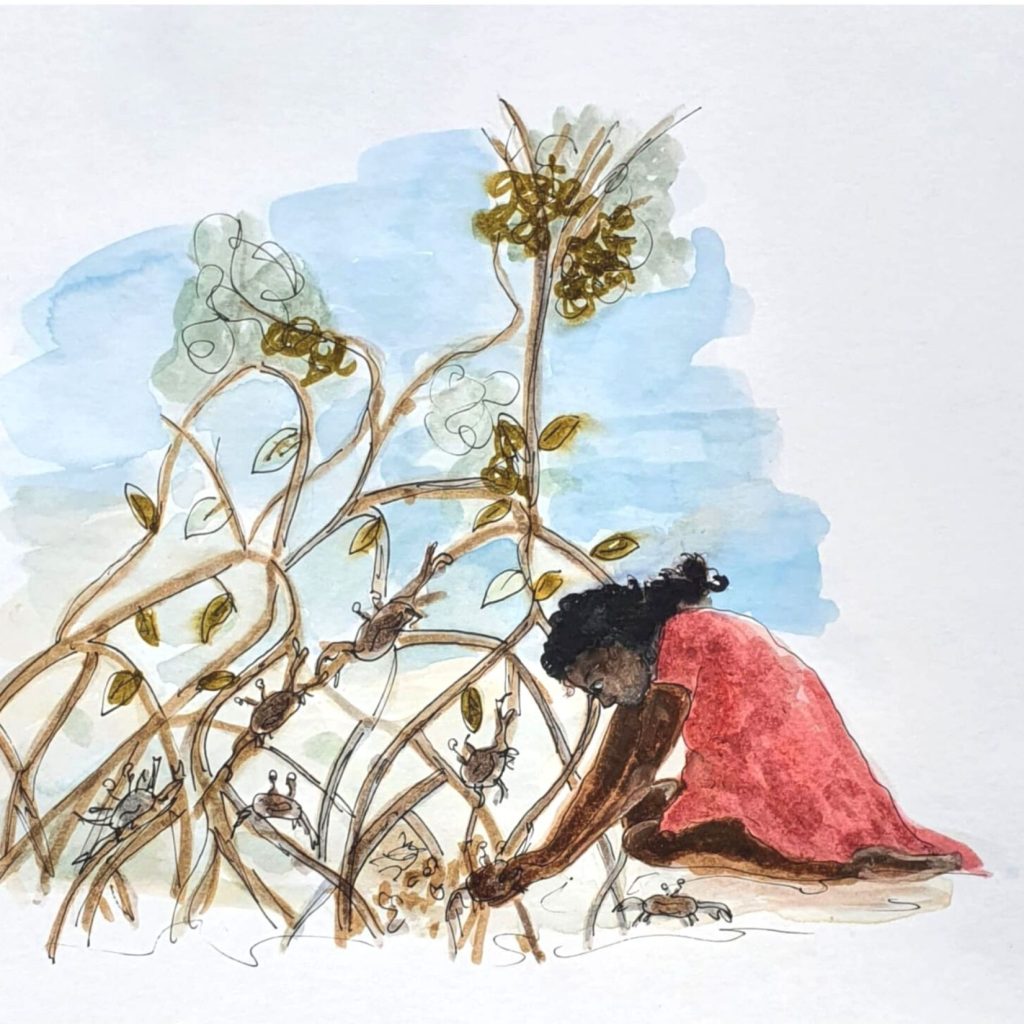By Elisa Malta (GIZ Brasil)

Isabel Chagas learned her current trade as a child. From an early age, she would watch and accompany her family in the trade – as she would later find out – that was to become the trade of her life. “I’ve been accompanying my mother while she fishes since I was six years old. We would go to the mangroves to harvest shellfish and oysters and sell them at the market, while doing a little bit of everything,” she says. At 54, Isabel continues to make a living from fishing, and her family’s main source of livelihood is fish and shellfish. Born into a family of seven siblings, Natália Santos started fishing at an early age with her father. As a teenager, she came to work in the kitchen, but she realized that what she really liked was fishing.
Isabel and Natália are some of the fisherwomen who make a living from various trades associated to artisanal fishing in the Costa dos Corais area. Most of these women are engaged in shellfishing, crab harvesting, and rod or net fishing, in addition to preparing and selling their catch. They are also responsible for household chores and child care. Amid so many tasks to ensure the livelihood and welfare of their families, many of these women were not even aware that fishing was their trade. “I work with oyster farming and I didn’t perceive my job as fishing, nor did I know that there were women in fishing. I imagined that only men had this as a job,” says fisherwoman Jaqueline dos Santos.
Traditional fisherwomen and fishermen are largely made invisible in Brazil and have limited involvement in political decision-making processes. This affects fisherwomen in particular, and also those who process or sell fish products.
A transformational meeting – When attending a TerraMar Project seminar on artisanal fishing in 2018, these women decided to take their destiny in their own hands. Despite the fact that the majority of attendees were men, women engaged in the group discussions. They developed so much rapport that they asked TerraMar for support. This was the inception of the Costa dos Corais Network of Fisherwomen.
With the support of GIZ Brazil, about 400 women became involved in a training effort to enhance their knowledge of their rights, their appreciation of their identity and culture and their sense of belonging to a traditional community. For six months, they attended seminars, workshops and talks that not only strengthened their ties, but also made them more knowledgeable and empowered with an awareness of their rights and better understanding of their roles in the community. Some benefits from this training are now apparent. Natalia emphasizes that the meetings brought about changes to the entire community. “The Network has made us feel more empowered and confident and has given us knowledge about environmental education in the fishing trade, which will help in the sustainability of several families.”
Creation of the Women’s Network also provided several lessons about the potential to bring women together, which can be beneficial both for the maintenance and development of the Network itself and for other projects designed to help in the organization and strengthening of women’s groups.
These women felt more capable of taking on roles. They are standing up for their positions and have a better understanding of their importance in the artisanal fishing trade. Now, they are not simply taking on roles to support fisher husbands, but because they are fisherwomen too. They were empowered to claim this position that was previously impossible.
To learn more about the history of the Costa dos Corais Network of Fisherwomen, read the publication.
Project: Protecting Brazil’s marine and coastal biodiversity (TerraMar)
Partner: Ministério do Meio Ambiente (MMA) (Brazilian Ministry of the Environment)
Commissioned by: Federal Ministry for the Environment and Consumer Protection (BMUV in German)